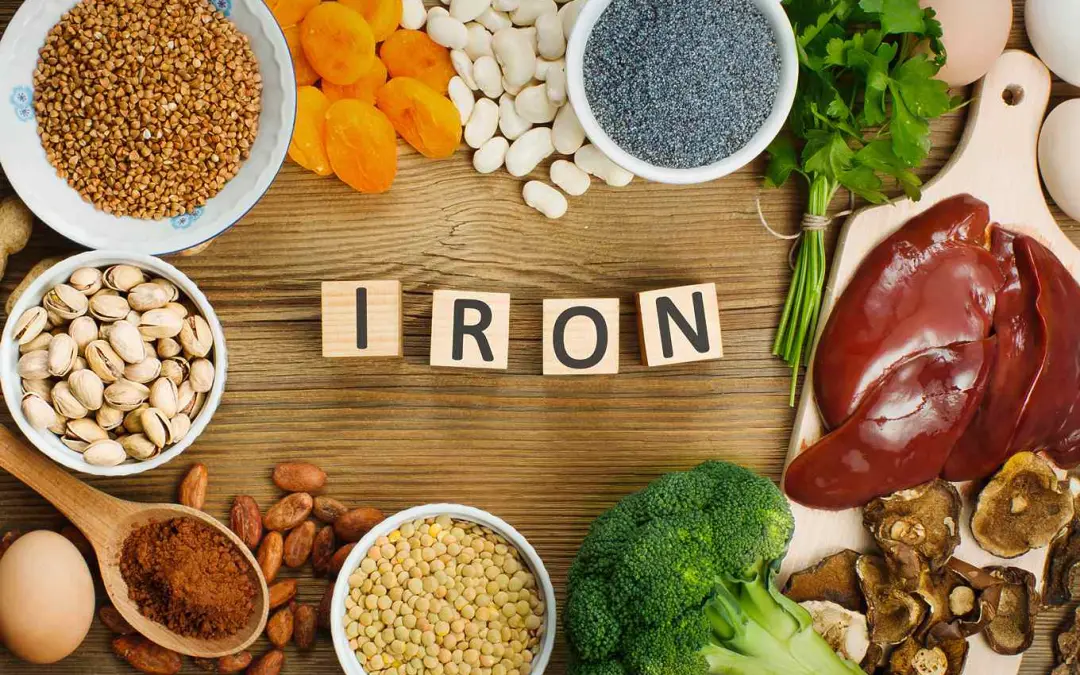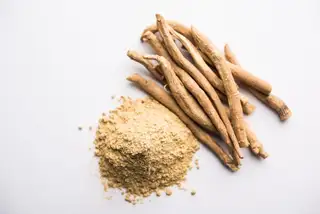
10 Symptoms of Iron Deficiency
10 Symptoms of Iron Deficiency and How to Get Enough Iron in Your Diet
Iron deficiency is a common yet critical condition that can significantly impact overall health and well-being. It occurs when the body lacks enough iron to produce hemoglobin, the protein in red blood cells that carries oxygen to body tissues. This blog post will explore the telltale signs of iron deficiency and offer guidance on how to bolster iron intake through diet and lifestyle changes.
1. Symptoms of Iron Deficiency
Iron deficiency can present with a range of symptoms that affect various bodily functions:
- Fatigue: A persistent feeling of tiredness and lack of energy is one of the most common symptoms.
- Pale Skin: A loss of the skin's natural color due to lower oxygen levels in the body.
- Weakness: Reduced physical strength and endurance.
- Dizziness and Lightheadedness: Caused by inadequate oxygen supply to the brain.
- Headaches: May occur as the body struggles with reduced oxygen levels.
- Cold Intolerance: Feeling cold more easily, especially in the extremities.
- Irritable Bowel Syndrome (IBS): Some individuals with iron deficiency experience digestive issues.
- Pica: An unusual craving for non-nutritive substances like ice, dirt, or clay.
- Breathlessness: Shortness of breath, especially with physical activity.
- Tachycardia: An abnormally fast heart rate as the heart tries to compensate for lower oxygen levels.
2. Importance of Iron in the Body
Iron is an essential mineral required for various bodily functions, including the production of hemoglobin, myoglobin, and various enzymes. It supports energy levels, cognitive function, immune system health, and cell growth.
3. Dietary Sources of Iron
A balanced diet rich in iron can help prevent and treat iron deficiency:
- Red Meat: A prime source of heme iron, which is more readily absorbed by the body.
- Poultry: Dark meat, in particular, contains higher iron levels than white meat.
- Fish and Seafood: Shellfish like oysters and clams are especially high in iron.
- Legumes: Beans, lentils, and chickpeas are rich in non-heme iron.
- Leafy Green Vegetables: Spinach, kale, and collard greens offer good amounts of iron.
- Nuts and Seeds: Pumpkin seeds, sesame seeds, and almonds are nutritious sources of iron.
- Fortified Foods: Cereals, bread, and some dairy products are often fortified with iron.
- Dried Fruits: Raisins, apricots, and figs contain iron and help increase iron absorption when eaten with vitamin C-rich foods.
4. Enhancing Iron Absorption
To maximize iron intake from food, certain dietary practices can enhance absorption:
- Vitamin C: Consuming vitamin C-rich foods alongside iron-rich foods can improve absorption.
- Avoiding Inhibitors: Limiting calcium-rich foods and beverages, as well as tea and coffee, during meals can prevent interference with iron absorption.
5. Cooking Methods
The way food is prepared can impact iron availability:
- Cooking in Cast Iron: Cooking food in cast iron pots can increase iron content due to the leaching of iron into the food.
- Soaking and Sprouting: These methods can increase the bioavailability of iron in certain plant-based foods.
6. Iron Supplements
In cases where dietary changes are insufficient, iron supplements may be necessary:
- Ferrous Sulfate: Commonly used and easily absorbed, it's often the first choice for supplementation.
- Ferrous Gluconate or Fumarate: These forms may be better tolerated with fewer gastrointestinal side effects.
7. Monitoring Iron Levels
Regular blood tests can help monitor iron levels and ensure supplementation is effective.
8. Risk Factors for Iron Deficiency
Understanding risk factors can help in taking preventive measures:
- Gender and Age: Women, especially those who are menstruating or pregnant, are at a higher risk.
- Vegetarian Diet: Those following a vegetarian or vegan diet may be more prone to iron deficiency.
- Excessive Blood Loss: Conditions causing chronic blood loss, such as ulcers or heavy menstruation, increase the risk.
9. Complications of Iron Deficiency
Untreated iron deficiency can lead to severe health complications:
- Anemia: Severe deficiency can result in anemia, affecting the oxygen-carrying capacity of the blood.
- Cognitive and Developmental Delays: In children, iron deficiency can impact cognitive development and behavior.
10. Integrating Iron-Rich Foods into Your Diet
Creating a meal plan that includes a variety of iron-rich foods is crucial for maintaining healthy iron levels.
Conclusion
Iron deficiency is a widespread issue that can be effectively managed through diet and lifestyle changes. By being aware of the symptoms, understanding the importance of iron, and making informed food choices, individuals can improve their iron levels and overall health. It's important to consult with healthcare professionals when considering supplementation to ensure safe and effective treatment.



